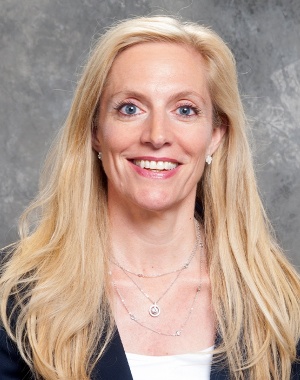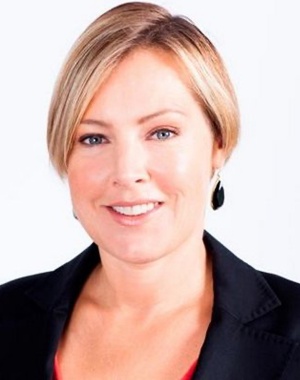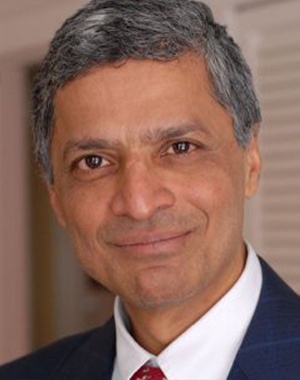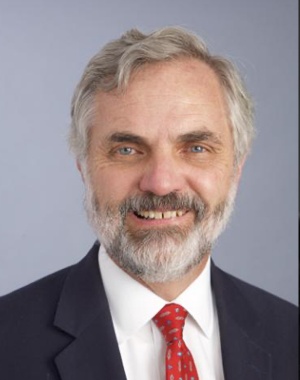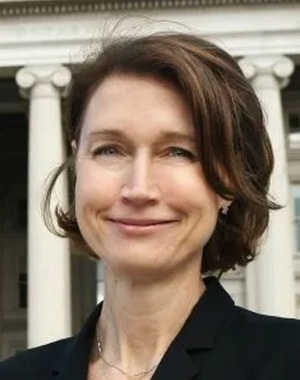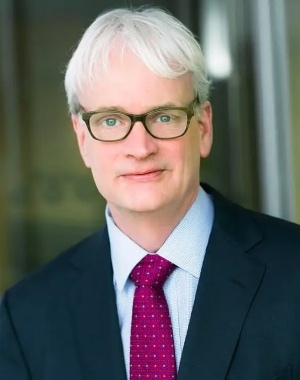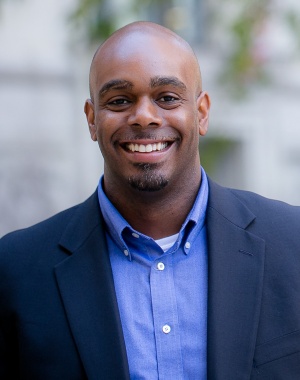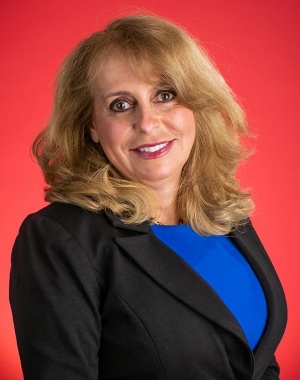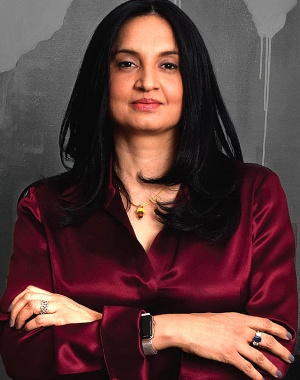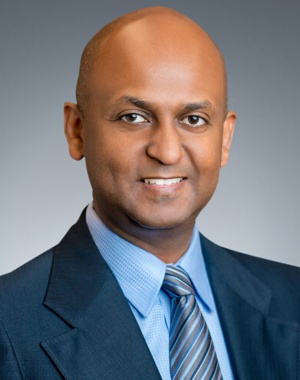The University of Michigan Center on Finance, Law, and Policy and U.S. Office of Financial Research are pleased to host the following speakers for our third annual financial stability conference: FinTech Risks and Opportunities: An Interdisciplinary Approach.
KEYNOTE SPEAKER
Lael Brainard took office as a member of the Board of Governors of the Federal Reserve System on June 16, 2014, to fill an unexpired term ending January 31, 2026. Prior to her appointment to the Board, Dr. Brainard served as Undersecretary of the U.S. Department of Treasury from 2010 to 2013 and Counselor to the Secretary of the Treasury in 2009. During this time, she was the U.S. Representative to the G-20 Finance Deputies and G-7 Deputies and was a member of the Financial Stability Board. She received the Alexander Hamilton Award for her service. From 2001 to 2008, Dr. Brainard was Vice President and the Founding Director of the Global Economy and Development Program and held the Bernard L. Schwartz Chair at the Brookings Institution, where she built a new research program to address global economic challenges. Dr. Brainard served as the Deputy National Economic Adviser and Deputy Assistant to President Clinton. She also served as President Clinton's personal representative to the G-7/G-8. From 1990 to 1996, Dr. Brainard was Assistant and Associate Professor of Applied Economics at the Massachusetts Institute of Technology's Sloan School of Management. She has published numerous articles on a variety of economic topics and is the editor or coeditor of several books. Previously, Dr. Brainard worked in management consulting at McKinsey & Company. Dr. Brainard was co‐editor of Offshoring White Collar Work (Brookings Press 2006); editor of Transforming the Development Landscape: the Role of the Private Sector (Brookings Press 2006) and Security by Other Means (Brookings Press 2006); and coauthor of The Other War: Global Poverty and the Millennium Challenge Corporation (Brookings Press 2003). She received a B.A. with university honors from Wesleyan University in 1983. She received an M.S. and a Ph.D. in economics in 1989 from Harvard University, where she was awarded a National Science Foundation Fellowship. She is also the recipient of a White House Fellowship.
KEYNOTE SPEAKER
Gillian Tett serves as US managing editor of the Financial Times. She writes weekly columns for the Financial Times, covering a range of economic, financial, political and social issues. Ms. Tett’s latest book, The Silo Effect, looks at the global economy and financial system through the lens of cultural anthropology. Ms. Tett previously served as assistant editor, U.S. managing editor from 2010-2012, and prior to this as assistant editor responsible for the Financial Times’ markets coverage. Her other roles at the Financial Times have included capital markets editor, deputy editor of the Lex column, Tokyo bureau chief, Tokyo correspondent, London-based economics reporter and a reporter in Russia and Brussels. In 2015, Ms. Tett was given an honorary doctorate from Lancaster University in the UK, one of the top ten British universities. In 2014, Ms. Tett was named “Columnist of the Year” in the British Press Awards, with judges describing her column as “provocative, revealing, often counter-intuitive” and commending her for covering “a gloriously eclectic range of themes”. She also received the 2014 Royal Anthropological Institute Marsh Award, which recognizes an individual who works outside academia and has used anthropology or anthropological ideas to contribute to a better understanding of the world’s problems. In 2012, she received a Society of American Business Editors and Writers (SABEW) Award for best feature article, “Madoff spins his story.” Her other awards include a President’s Medal by the British Academy (2011), being recognized as Journalist of the Year (2009) and Business Journalist of the Year (2008) by the British Press Awards, and as Senior Financial Journalist of the Year (2007) by the Wincott Awards. She is the author of The Silo Effect: The Peril of Expertise and the Promise of Breaking Down Barriers, published by Simon & Schuster in 2015; New York Times bestseller Fool’s Gold: How Unrestrained Greed Corrupted a Dream, Shattered Global Markets and Unleashed a Catastrophe, published by Little Brown and Company in 2009; and Saving the Sun: A Wall Street Gamble to Rescue Japan from its Trillion Dollar Meltdown, published by HarperCollins in 2003. Before joining the Financial Times in 1993, Ms. Tett was awarded a Ph.D. in social anthropology from Cambridge University based on field work in the former Soviet Union. While pursuing the Ph.D., she freelanced for the Financial Times and the BBC. She is a graduate of Cambridge University.
Michael S. Barr is the Joan and Sanford Weill Dean at the Ford School, the Frank Murphy Collegiate Professor of Public Policy, the Roy F. and Jean Humphrey Proffitt Professor of Law, and faculty director of the Center on Finance, Law, and Policy. He is also a senior fellow at the Center for American Progress and, previously, at the Brookings Institution. He co-founded both the International Transactions Clinic and the Detroit Neighborhood Entrepreneurs Project of the Community and Economic Development Clinic. Professor Barr conducts research regarding financial services and writes about a wide range of issues in domestic and international financial regulation. His books include Financial Regulation: Law & Policy (Foundation Press 2016, with Howell Jackson and Margaret Tahyar), No Slack: The Financial Lives of Low-Income Americans (Brookings Press, 2012), Insufficient Funds(Russell Sage, 2009, co-edited with Rebecca Blank), and Building Inclusive Financial Systems (Brookings Press, 2007, co-edited with Anjali Kumar and Robert Litan). Barr serves or has served in a wide variety of advisory roles. He serves on the Bill and Melinda Gates Foundation FinTech Advisory Council, the Advisory Board for the Future of Finance Initiative (India), the FDIC Advisory Committee on Economic Inclusion, ideas42's Scientific Advisory Board, the advisory board of the CFSI Financial Solutions Lab, the advisory board for the JP Morgan Chase Institute, the Research Advisory Board for the Center for Equitable Growth, and the Advisory Board of Lending Club, and he recently served as member of the Advisory Board for Ripple Labs, a member of the Russell Sage Foundation Working Group on Behavioral Economics and Consumer Finance, and the advisory board of the US Financial Diaries Project. Professor Barr was on leave during 2009 and 2010, serving in President Barack H. Obama’s Administration as the U.S. Department of the Treasury's assistant secretary for financial institutions, and was a key architect of the Dodd-Frank Wall Street Reform and Consumer Protection Act of 2010. Prior to his Senate confirmation, Barr served on the National Economic Council in the White House. Professor Barr previously served in the Administration of William J. Clinton as Treasury Secretary Robert E. Rubin's special assistant, as deputy assistant secretary of the Treasury, as special adviser to President William J. Clinton, and as a special adviser and counselor on the policy planning staff at the U.S. Department of State. Before joining the Clinton Administration, Barr served as a law clerk to U.S. Supreme Court Justice David H. Souter and the Hon. Pierre N. Leval, then of the Southern District of New York. He received his JD from Yale Law School, his MPhil in international relations as a Rhodes Scholar from Magdalen College, Oxford University, and his BA, summa cum laude, with honors in history, from Yale University.
Pawan Bakhshi is the country lead at the India country office, driving the Financial Services for the Poor India strategy. He focusses on how to efficiently and effectively deliver digital financial services to the poor which can be quickly scaled to national levels while engaging with the Government, Regulators and Private sector players. He was a part of RBIs Committee on Medium-term Path on Financial Inclusion as well as a part of the technical sub-group for RBI’s Committee on household finance. He believes that the Direct Benefit Transfer scheme of the Government of India can expand the payment grid in India to financially include the often excluded segments of the society. Prior to joining BMGF, he was the Associate Director for Digital Financial Services at MicroSave. He was also an expert faculty at the Helix Institute Digital Finance, Kenya, which trains staff of mobile money operators on Agent Networks. He is considered a pioneer in the Mobile Commerce/Digital Financial Inclusion arena and co-creator of India’s first mobile wallet service - Airtel Money. He led the program from Ideation to Go-to- Market. Later he incubated the transformation track for providing Airtel Money services for the social sector covering people from the bottom of the pyramid. He was also the co-lead for SingTel’s m-commerce program across 7 countries. Pawan completed his Ph.D. from Faculty of Management Studies, Dr. B.R. Ambedkar University, Agra and obtained a Post Graduate Diploma in Management (Strategy and Marketing) from International Management Institute, New Delhi and his Bachelor’s with Honors in Economics from Delhi University, New Delhi.
Prior to his confirmation as OFR Director, Richard Berner served as Counselor to the Secretary of the Treasury with responsibility for standing up the Office of Financial Research (OFR). Before joining the Treasury in April 2011, he was co-head of Global Economics at Morgan Stanley. Berner previously served as chief economist at Mellon Bank and as a member of Mellon's Senior Management Committee. He served as a senior economist for Morgan Stanley, Salomon Brothers, and Morgan Guaranty Trust Company, and as director of the Washington, D.C., office of Wharton Econometrics. For seven years, he worked on the research staff of the Federal Reserve Board in Washington. He has also been an adjunct professor of economics at Carnegie-Mellon University and George Washington University. Berner has been a member of the Economic Advisory Panel of the Federal Reserve Bank of New York, the Panel of Economic Advisers of the Congressional Budget Office, the Executive Committee and the Board of Directors of the National Bureau of Economic Research, and the Advisory Committee of the Bureau of Economic Analysis. Berner has won forecasting awards from Blue Chip Economic Indicators, The Wall Street Journal, Market News, and the National Association for Business Economics. He was awarded the 2007 William Butler Award for Excellence in Business Economics. Berner received his doctorate from the University of Pennsylvania and his bachelor's degree from Harvard College.
Chris Brummer is Agnes N. Williams Research Professor and Faculty Director of Georgetown's Institute of International Economic Law. Prior to joining Georgetown's faculty with tenure in 2009, Brummer was an assistant professor of law at Vanderbilt Law School. He has also taught at several leading universities as a visiting professor including the universities of Basel, Heidelberg, and the London School of Economics.
Amar Bhidé is Thomas Schmidheiny Professor at The Fletcher School. He is the author of A Call for Judgment: Sensible Finance for a Dynamic Economy (read a profile of his book here) published by Oxford University Press in 2010. His 2008 book, The Venturesome Economy: How Innovation Sustains Prosperity in a More Connected World, (Princeton University Press 2008) won the Association of American Publishers’ PROSE Award for Professional and Scholarly Excellence in Business, Finance, and Management, and was in the “Best of 2008” lists of the Economist, BusinessWeek and Barrons. Bhidé also authored The Origin and Evolution of New Businesses(Oxford 2000), and Of Politics and Economic Reality(Basic Books 1984). Bhidé is a founding member of the Center on Capitalism and Society and spearheaded the launch of its eponymous journal, Capitalism and Society (published by the Berkeley Electronic Press) which he now edits (with Prof. Edmund Phelps). He is also a member of the Council on Foreign Relations and a Fellow of the Royal Society of Arts (RSA). Bhidé was previously the Laurence D. Glaubinger Professor of Business at Columbia University. He served on the faculties of Harvard Business School (from 1988 to 2000) and the University of Chicago's Graduate School of Business. A former Senior Engagement Manager at McKinsey & Company and proprietary trader at E.F. Hutton, Bhidé served on the staff of the Brady Commission which investigated the stock market crash. Bhidé earned a DBA (1988) and an MBA with high distinction as a Baker Scholar (1979) from Harvard. He received a B.Tech from the Indian Institute of Technology in 1977. Bhidé, who has been studying innovation and entrepreneurship for more than twenty years also has several publications in the areas of strategy, finance and firm governance. His ten Harvard Business Review articles include “The Judgment Deficit”, "Efficient Markets, Deficient Governance," "How entrepreneurs craft strategies that work," "Bootstrap Finance: the Art of Start-ups," and "Hustle as Strategy." His work on financial markets and governance includes "The Hidden Costs of Stock Market Liquidity" in the Journal of Financial Economics and articles in the Journal of Applied Corporate Finance. He has written numerous articles in the Wall Street Journal, The New York Times, BusinessWeek, Forbes, the Financial Times and The LA Times.
Mark Flood, Research Principal, is a financial economist who is part of the OFR Financial Markets team. He joined the Office in 2011, soon after it was established. He has taught finance and business at universities in the United States and Canada and worked as a financial economist on issues of regulatory policy and risk management at the Federal Reserve Bank of St. Louis, the Office of Thrift Supervision, the Federal Housing Finance Board, and the Federal Housing Finance Agency. He was a founding member of the Committee to Establish a National Institute of Finance. His research focuses on financial data and risk analysis and has appeared in a number of leading scholarly and policy journals, and in the two-volume Handbook of Financial Data and Risk Information. For the OFR, he has written numerous working papers and contributed to several annual reports. He has a doctorate in finance from the University of North Carolina, Chapel Hill, and bachelor's degrees in finance, German, and economics from Indiana University, Bloomington.
Amy Friend is the former Senior Deputy Comptroller and Chief Counsel at the Office of the Comptroller of the Currency (OCC). In this role, Ms. Friend oversaw all of the agency’s legal activities, including legal advisory services to banks and examiners, enforcement and compliance activities, litigation, legislative initiatives, and regulation of securities and corporate practices of national banks. Ms. Friend further oversaw the agency's licensing functions and was a member of the agency’s Executive Committee. She assumed these duties in February 2013. Prior to rejoining the OCC in this role, Ms. Friend served as Managing Director at Promontory Financial Group from 2011 advising clients on a variety of regulatory, strategic, and compliance issues. From 2008 to 2010, she served as Chief Counsel for the U.S. Senate Committee on Banking, Housing, and Urban Affairs where she worked with the Committee to develop and enact legislative responses to the financial crisis, including the Dodd-Frank Wall Street Reform and Consumer Protection Act. Ms. Friend previously served as Assistant Chief Counsel at the OCC from 1998 to 2008. Prior to her work at the OCC, Ms. Friend held a number of positions in the U.S. House of Representatives, including minority general counsel to the Committee on Banking, Finance and Urban Affairs (now the Committee on Financial Services). Ms. Friend was an associate at the law firms of Jenner and Block, and Brownstein, Zeidman, and Schomer. She is a graduate of the Georgetown University Law Center, cum laude, and the University of Pennsylvania, magna cum laude, Phi Beta Kappa.
Oliver Goodenough's research and writing at the intersection of law, economics, finance, media, technology, neuroscience and behavioral biology make him an authority in several emerging areas of law. He is expert in the impact of digital technology on law, with a particular emphasis on using the computational approaches to create computable contracts and digital business organizations and to improve the support provided by law for innovation and entrepreneurship generally. His academic appointments reflect the breadth of his studies. At Vermont Law School, he is a Professor of Law and the Director of Scholarship. He is also currently affiliated faculty at Stanford’s CodeX Center for Legal Informatice, a Research Fellow of the Gruter Institute for Law and Behavioral Research, and an Adjunct Professor at Dartmouth's Thayer School of Engineering. He has also been a Faculty Fellow at The Berkman Center for Internet & Society at Harvard University, where he was co-director of the Law Lab project, an IPA Researcher and Visiting Fellow at the US Office of Financial Research, a Visiting Research Fellow at the Zoology Department of the University of Cambridge, a Lecturer in Law at the University of Pennsylvania Law School and a Visiting Professor at the Neurological Department of the Charite Medical School of Humboldt University in Berlin. Professor Goodenough has also served as co-director of the Education and Outreach Program of the MacArthur Foundation Law and Neuroscience Project. Professor Goodenough has written on a wide variety of subjects relating law, business, the internet, and cognitive and behavioral science. His chapter "Digital Firm Formation" in the Kauffman Foundation book Rules for Growth (2011) has sparked reforms in corporate law. Law, Mind and Brain, co-edited with Michael Freeman, was published by Ashgate in February, 2009. With Semir Zeki, he edited the 2004 special issue of the Philosophical Transactions of the Royal Society devoted to Law and the Brain, reprinted in book form under that title by Oxford University Press in 2006. He is co-author of This Business of Television, now in its third edition. His shorter works include articles and chapters on law and neuroscience, intellectual property, the transmission of culture, and, with Richard Dawkins, a report in Nature on chain letters as evolving 'mind viruses'. Professor Goodenough received his BA from Harvard University and his JD from the University of Pennsylvania. After graduation, he practiced law in New York, first as an associate with Cleary, Gottlieb, Steen & Hamilton and then with Kay, Collyer & Boose, where he was became a partner. In 2000 he won the Lee Loevinger Jurimetrics Research Award for his work on law and neuroscience, in 2002 the Gruter Institute Bene Merenti Award for outstanding achievements in law and behavioral research, and in 2010 the Vermont Law School Richard Brooks Faculty Scholarship Prize for scholarly achievement.
Brian Knight is a Senior Research Fellow for the Financial Markets Working Group at the Mercatus Center at George Mason University. Brian’s research focuses on numerous aspects of financial regulation, including the creation of pro-innovation regulatory environments, the role of federalism in fintech regulation, the use of digital assets for financial transactions, the role of regulation for credit markets and consumer protection, and the provision of capital to small businesses. Prior to joining Mercatus, Brian worked for the Milken Institute, where he headed up the FinTech and Capital Access programs. He has experience working for a broker-dealer with a focus on the emerging online private-placement market and was the co-founder of CrowdCheck, a company providing due-diligence and disclosure services to companies and intermediaries engaged in online private offerings. Brian received his law degree from the University of Virginia and his bachelor’s degree from the College of William and Mary.
Melissa Koide is founder and CEO of FinRegLab, an independent organization that leverages technology solutions to achieve public policy aspirations, address regulatory goals, and drive the financial sector towards an efficient and inclusive financial marketplace. FinRegLab provides an independent Labratory for policymakers and regulators, technology and financial sector innovators, and consumer advocates to build an evidence-based understanding of new financial technologies and their impact on consumers and the implications for public policy. Prior to establishing FinRegLab, Melissa served for four and one-half years as the U.S. Treasury Department’s Deputy Assistant Secretary for Consumer Policy where she developed and executed the Treasury Department’s consumer policies in the areas of credit, student loans, payments, savings, credit reporting, fintech, and financial inclusion. Melissa helped to build the first government offered preretirement savings product, the myRA, and she established the $5 million Innovation Fund to support research and strategies to improve consumers’ financial health and their access to safe and affordable financial products and services. Melissa is currently a nonresident fellow at the nonprofit think tank, the Urban Institute, and before joining the U.S. Treasury Department, she was the Vice President of Policy at the Center for Financial Services Innovation.
Over nearly two decades with USAID and the State Department, Kathleen (Kay) McGowan conceptualized and led the U.S. government’s digital financial inclusion practice, overseeing the pivot from supporting traditional microfinance approaches to a strategy of pushing policy and markets to leverage technology and innovation to advance inclusive financial services sectors. Ms. McGowan helped create the now-global campaign to digitize public sector payments as a catalytic driver of digital financial services markets in developing countries. Prior joining USAID, Kay was a political officer in the State Department’s Foreign Service, and has significant experience in South Asia and the Middle East. A recognized thought leader in digital financial inclusion and policy reform, Kay designs interdisciplinary courses on the role technology and policy innovation for inclusive economic development and improved governance for Georgetown University and speaks frequently at fora related to inclusive FinTech.
Adair Morse is Associate Professor at the Haas School of Business at the University of California at Berkeley, where she teaches New Venture Finance. She is on the board of the Haas Impact Investing Network, the faculty advisor to Haas FinTech Club, faculty mentor to Gender Equity Initiative, and faculty co-director of the Hass Impact Research Prize. She holds a Ph.D. in finance from the University of Michigan. Adair’s research spans three areas of finance: household finance, corruption, and asset management, with the unifying theme that she tries to choose topics useful for leveling economic playing fields. She has won a number of top finance research prizes, including the Brattle Prize, the Jensen Prize, the WFA Prize, and the Moskowitz Impact prize, and her various works have been directly implemented into policy.
Richard Neiman is Head of Regulatory and Government Affairs for Lending Club, the largest online credit marketplace for connecting borrowers and investors. He joined Lending Club in 2014, after serving for three years as Vice Chairman of the Global Financial Services Regulatory Practice at PricewaterhouseCoopers LLP (PwC). Richard was previously Superintendent of Banks for the State of New York from 2007-2011, where he was responsible for the supervision of all state chartered and licensed financial institutions, including banks, nonbank lenders, money transmitters, and the majority of foreign bank branches in the U.S. During his term as Superintendent, Richard was appointed by the U.S. Congress to serve on the five-member Congressional Oversight Panel for TARP. Earlier in his career, Richard was EVP and General Counsel of TD Waterhouse (now TD Ameritrade), and General Counsel of the Global Equities Division at Citibank. Richard began his career with the Office of the Comptroller of the Currency in Washington, D.C. where he served initially as staff attorney and then as Special Assistant to the Chief Counsel. Outside the office, Richard advises the Bipartisan Policy Center’s Financial Regulatory Reform Initiative and co-chairs its Regulatory Architecture Task Force. He is also on the advisory council of the Institute for Financial Market Regulation and on the advisory board of Columbia Business School’s Chinese Business Initiative. Richard also serves on the Board of the Harlem Educational Activities Fund (HEAF), a mentoring and college preparatory nonprofit, and on the Board of Henry Street Settlement, one of New York’s oldest social services organizations. Richard received his bachelor’s degree from American University School of Government and his J.D. degree from Emory University School of Law.
Mark Newman's research is on statistical physics and the theory of complex systems, with a primary focus on networked systems, including social, biological, and computer networks, which are studied using a combination of empirical methods, analysis, and computer simulation. Among other topics, he and his collaborators have worked on mathematical models of network structure, computer algorithms for analyzing network data, and applications of network theory to a wide variety of specific problems, including the spread of disease through human populations and the spread of computer viruses among computers, the patterns of collaboration of scientists and business-people, citation networks of scientific articles and law cases, network navigation algorithms and the design of distributed databases, and the robustness of networks to the failure of their nodes. Professor Newman also has a research interest in cartography and was, along with collaborators, one of the developers of a new type of map projection or "cartogram" that can be used to represent geographic data by varying the sizes of states, countries, or regions. Professor Newman is the author of several books, including a recent textbook on network theory and a popular book of cartography. He has collaborated in research on the structure and function of networks, particularly social and information networks, which we study using a combination of empirical methods, analysis, and computer simulation. Among other things, we have investigated scientific co-authorship networks, citation networks, email networks, friendship networks, epidemiological contact networks, and animal social networks; we've studied fundamental network properties such as degree distributions, centrality measures, assortative mixing, vertex similarity, and community structure, and made analytic or computer models of disease propagation, friendship formation, the spread of computer viruses, the Internet, and network navigation.
Martin Philbert is provost and executive vice president for academic affairs at the University of Michigan. He is also professor of toxicology in the University of Michigan School of Public Health. He earned his Bachelor of Science degree in 1984 from the College of Arts and Technology at Cambridge, and his doctorate in 1987 from the London University Royal Postgraduate Medical School. He was awarded a postdoctoral fellowship in the Neurotoxicology Laboratories at Rutgers University from 1988-90. Dr. Philbert served as a research assistant professor at Rutgers’ Neurotoxicology Laboratories until 1995 when he joined the faculty at the University of Michigan School of Public Health as an assistant professor of toxicology. He was promoted to associate professor in 2000 and to professor in 2004. He served as associate chair for research and development in the Department of Environmental Health Sciences from 2000-03. In 2004, Dr. Philbert was appointed senior associate dean for research of the School of Public Health, a position he held through 2010 when he was appointed as dean of the school. He was appointed as provost in September 2017. Dr. Philbert maintained a continuously federally funded portfolio of basic research activities. His research has focused on the development of flexible polymer nanoplatforms for optical sensing of ions and small molecules and the early detection and treatment of brain tumors. Other research interests include the mitochondrial mechanisms of chemically-induced neuropathic states. His work has been funded by the National Institutes of Health, the Department of Air Force and the National Cancer Institute. He is the author of more than 200 peer- reviewed scholarly manuscripts, abstracts and book chapters. Dr. Philbert served as the inaugural chair of the US-EPA Chemical Assessment Advisory Committee that provides peer review of risk assessments produced under the auspices of the EPA’s Integrated Risk Information System and was a standing member of the Agency’s Science Advisory Board. He also served a four-year term on the National Advisory Environmental Health Sciences Council of the National Institute of Environmental Health Sciences, served as chair of the US-EPA Board of Scientific Counselors, chair of the US-FDA Science Advisory Board, and provides consultation to federal agencies on a variety of issues surrounding emerging nanotechnologies, nanomedicine, health and safety. Dr. Philbert is an elected member of the Institute of Medicine of the National Academies of Science (USA), a fellow of the Royal Society of Chemistry (UK), a fellow of the Academy of Toxicological Sciences (USA), a member of the Division of Earth and Life Sciences of the National Academy of Science (USA), the Committee on Toxicology of the National Research Council (USA).
Amiyatosh Purnanandam is a Professor of Finance at the Ross School of Business at the University of Michigan. Amiyatosh has a PhD from Cornell University, an MBA from the Indian Institute of Management, and a B. Tech. (Electrical Engineering) from the Indian Institute of Technology. Amiyatosh has published extensively on topics related to corporate finance, banking, subprime mortgage crisis, and credit risk in top journals in Finance and Economics. His research provides direct policy implications for banking regulations and financial sector reforms around the world. He currently serves on the Editorial Board of several finance journals. Amiyatosh has taught extensively a broad range of courses in finance to undergraduates, MBAs, PhDs, and Executives. He has received several teaching awards and award nominations over the years, and he currently teaches some of the most popular finance electives at Ross. Amiyatosh has extensive industry experience in the banking sector through his consulting engagements, and a four-year work stint with a leading bank in India. He loves to play chess and enjoys reading history books. Amiyatosh's research covers a wide range of topics in banking, real estate, corporate finance and credit risk. His recent research work is mostly related to banking, subprime crisis, mortgage finance, and incentives of government agencies. These papers analyze causes and consequences of financial crisis, measurement and reporting of risk in banking sector, design of mortgage-backed-securities, incentive issues in securitization markets, and the effect of market pressure on bureaucracies' actions. Some of his earlier work has analyzed the effect of default risk on corporate financial policies, and equity returns. In addition, several of his papers focus on corporate financing decisions involving IPOs and SEOs. His research has been published in leading journals such as Journal of Financial Economics, Journal of Finance, Review of Financial Studies, Review of Finance, and Journal of Monetary Economics. He currently serves as an Editor of Review of Finance and Associate Editor of Review of Financial Studies, Journal of Financial Intermediation, Journal of Banking and Finance, and International Review of Finance.
John Ramsay is IEX’s Chief Market Policy Officer, and is responsible for developing and communicating IEX’s positions on market policy issues, and engaging with governmental and regulatory authorities and certain IEX stakeholders on those issues. IEX, also known as the Investor’s Exchange, is a stock exchange created to negate the high-speed advantages of high-frequency traders, and was featured prominently in Michael Lewis’ best-selling Flash Boys: A Wall Street Revolt. He also acts as IEX’s representative on governing committees with responsibility for various aspects of the national market system, including the securities information processors, the consolidated audit trail, and the Limit Up/Limit Down Plan. Mr. Ramsay joined IEX in 2014 from the Securities and Exchange Commission, where he led the Division of Trading and Markets, the group responsible for regulating broker-dealers and self-regulatory organizations. Previously, he led SEC efforts to implement significant elements of the Dodd-Frank Act. Before the SEC, he held senior positions at the Commodity Futures Trading Commission, the National Association of Securities Dealers (now FINRA), the law firm of Morgan Lewis & Bockius, and Citigroup Global Markets.
Matthew Reed is Chief Counsel for the OFR. He also is former Chairman of the Regulatory Oversight Committee of the global Legal Entity Identifier system, a committee of more than 50 authorities from around the globe overseeing a new system of financial entity identification. Previously, he was a senior lawyer at the Securities and Exchange Commission (SEC), where he held a range of positions, including overseeing legal issues for the SEC's interactive data-filing program and deputy for the chairman's initiative to use technology to transform financial disclosures and reporting. Reed also was a lead investigator in an SEC case involving Enron Corp.'s attorneys and was an advisor to an SEC commissioner. His previous public service work included positions as an advisor to a U.S. senator and lead trial counsel on dozens of cases for the Department of Justice. Reed graduated with high honors from the George Mason School of Law.
Jared Sawyer serves as deputy assistant secretary for Financial Institutions Policy at the U.S. Department of Treasury. In this capacity, Sawyer is responsible for policy development and management of programs related to financial institutions, insurance, and cybersecurity. Previously, he served as senior counsel to Chairman Mike Crapo (R-ID) on the Senate Committee on Banking, Housing & Urban Affairs, where he managed issues related to prudential regulation, consumer financial protection, and financial technology. During the 114th Congress, Sawyer served as Designee and lead policy advisor for Chairman Randy Neugebauer (R-TX) on the Subcommittee on Financial Institutions and Consumer Credit in the House Financial Services Committee.
Joshua Sledge is a Director on CFSI’s Program Team and has been with CFSI since 2009. He manages and advises on research projects, consulting engagements and initiatives designed to support innovators working on solutions to improve financial health. Prior to joining CFSI, Josh was a Senior Investment Analyst at Prudential Capital Group, an investment division of Prudential Financial. He holds a Masters in Liberal Studies from Northwestern University and a Bachelors in Business Administration from the Ross School of Business at the University of Michigan.
Luz Urrutia joined Opportunity Fund as CEO in 2017, working to build a more inclusive financial system. In this role, Luz is helping to scale the non-profit Community Development Financial Institution (CDFI) to deepen its impact in California and expand its reach nationwide. Already the nation’s largest non-profit small business lender – with over $90 million in small business loans under management – Luz will attract the capital and raise the philanthropic funds that will quadruple Opportunity Fund’s impact. By 2020, under Luz’s leadership, Opportunity Fund will invest $500,000,000 to drive economic mobility for 50,000 underserved entrepreneurs, students, and working families. Luz has spent her career in banking and financial services, particularly in underserved markets, and has won numerous awards for her leadership. She began her career at Wachovia, where she spent 18 years in various leadership positions and led the bank’s expansion into Mexico and Canada. She was a founding investor and President and Chief Operating Officer of El Banco de Nuestra Comunidad from 2001 to 2013, a financial institution based in Georgia serving the underbanked Latino population with alternative financial services and banking products. As VP of Retail Sales and Services at Oportun from 2013-2016, Luz’s team expanded Oportun’s footprint from 75 to 195 stores across five states. In 2016, Luz joined Dollar Financial Group as CEO for the Americas to help transform the organization into a responsible consumer finance business for underserved communities. Luz has served on the Board of the Center for Financial Services Innovation and the Consumer Advisory Council of the Federal Reserve Bank. In 2006, Luz was awarded “Community Banker of the Year” by American Banker; in 2009, she was recognized as the “Latina Business Woman of the Year” by Latina Style; and, in 2015 was named a “Woman of Influence” by Silicon Valley Business Journal. Luz is originally from Caracas, Venezuela. She has been recognized by several foreign and domestic governments, public and private institutions for her advocacy and commitment to serving the financial needs of the underserved Hispanic market in the US, and is a regular speaker at industry and regulatory conferences on how responsible financial services can help un/underbanked consumers gain access to economic mobility and improve their financial health. Luz received a B.S., magna cum laude, in Business Administration and Finance and an M.B.A., both from Georgia State University.
Moira Vahey is senior advisor for the U.S. Consumer Financial Protection Bureau's Project Catalyst, the federal agency's initiative to support innovators in creating consumer-friendly financial products and services. Prior to assuming that role, Vahey served as senior CFPB spokesperson. Before joining the Bureau, she served in various technology policy roles including communications director and policy advisor at the White House Office of Science and Technology Policy and as policy advisor at the U.S. Commerce Department’s National Telecommunications and Information Administration.
Supurna VedBrat has more than eighteen years of experience working with financial markets. Currently, Ms. VedBrat is the Head of Global Trading at BlackRock. Ms. VedBrat’s responsibilities include setting the strategic vision and running electronic trading across asset classes and regions at BlackRock. She is also responsible for adapting trading strategies to accommodate market structure changes that are taking place due to derivative regulatory reform and has been active in bringing the buyside business model. Prior to joining BlackRock, Ms VedBrat consulted for the firm she founded, Strategic Solutions Consulting Corp., where she specialized in business growth and development, business restructuring, and business process development and optimization. Ms. VedBrat has also held multiple senior positions at Bank of America and various sales and trading positions at ING Barings in London and Lehman Brothers in New York. Ms. VedBrat started her career as a software engineer with IBM. Ms. VedBrat graduated from Rutgers University, USA, with a BA in computer science and Delhi University, India with a degree in Mathematics Honors.
Michael Wellman is the Lynn A. Conway Collegiate Professor of Computer Science & Engineering and Associate Dean for Academic Affairs for the College of Engineering at the University of Michigan. He received a PhD from the Massachusetts Institute of Technology in 1988 for his work in qualitative probabilistic reasoning and decision-theoretic planning. From 1988 to 1992, Wellman conducted research in these areas at the United States Air Force’s Wright Laboratory. For the past 25 years, his research has focused on computational market mechanisms and game-theoretic reasoning methods, with applications in electronic commerce, finance, and cyber-security. As Chief Market Technologist for TradingDynamics, Inc., he designed configurable auction technology for dynamic business-to-business commerce. Wellman previously served as Chair of the ACM Special Interest Group on Electronic Commerce (SIGecom), and as Executive Editor of the Journal of Artificial Intelligence Research. He is a Fellow of the Association for the Advancement of Artificial Intelligence and the Association for Computing Machinery.
Haimera Workie is a Senior Director responsible for heading up FINRA's Emerging Regulatory Issues Group, which focuses on analyzing new and emerging risks and trends related to the securities market. Previously, Mr. Workie served as Deputy Associate Director in the Division of Trading and Markets at the U.S. Securities and Exchange Commission. In this capacity, Mr. Workie was tasked with developing a variety of Dodd-Frank Act related rulemakings, supervising policy matters related to market intermediaries and financial market utilities, and representing the Commission before several international standard setting bodies. Mr. Workie also previously served as Counsel to Commission Chair Mary Schapiro. Prior to joining the Commission, he was an associate at the law firm of Skadden, Arps, Slate, Meagher & Flom, with a practice focusing on corporate law. He is a graduate of the Massachusetts Institute of Technology (B.S., M.S.) and Harvard Law School (J.D.).
Yesha Yedav's research interests lie in the area of financial and securities regulation, notably with respect to the evolving response of regulatory policy to innovations in financial engineering, market microstructure and globalization. Before joining Vanderbilt's law faculty in 2011, Professor Yadav worked as legal counsel with the World Bank in its finance, private-sector development and infrastructure unit, where she specialized in financial regulation and insolvency and creditor-debtor rights. Before joining the World Bank in 2009, she practiced from 2004-08 in the London and Paris offices of Clifford Chance, in the firm's financial regulation and derivatives group. As part of her work in the area of payments regulation, she was assigned to advise the European Payments Council on the establishment of the Single Euro Payments Area (SEPA), an initiative that seeks to integrate the domestic payments markets legally and operationally across the European Economic Area and Switzerland. Professor Yadav has also served as a senior research associate and interim research director to the Committee on Capital Markets Regulation. Since joining Vanderbilt, Professor Yadav has served as honorary advisor to India’s Financial Services Law Reform Commission (FSLRC) and on the Atlantic Council’s Task Force on Divergence and the Transatlantic Financial Reform and G-20 Agenda. She earned an M.A. in law and modern languages with First Class honors at the University of Cambridge, after which she earned an LL.M. at Harvard Law School, where she focused on financial and capital markets regulation, payment systems and terrorist financing. Professor Yadav teaches Securities Regulation, Corporate Bankruptcy, International Financial Regulation and Market Microstructure. She was honored in 2015 as a winner of the Hall-Hartman Prize Outstanding Professor Award for excellence in teaching.

